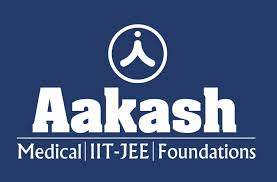@JUDGMENTTAG-ORDER
R.K. Merathia, J.@mdashThis appeal has been filed against the judgment and decree dated 11.8.2005, passed by learned 3rd Additional District and Sessions Judge (Fast Track Court), Dumka, in Title Appeal No. 4 of 2002 dismissing the appeal and confirming the judgment dated 28.2.2002, passed by learned Subordinate Judge-1. Dumka in Title Suit No. 209/1998.
2. Mr. P.K. Prasad, learned senior counsel, appearing for the Appellants, submitted that the learned Courts below could not have gone into the question of validity of the deed of adoption as it was not challenged and as the suit itself was barred by limitation; that there is no finding with regard to the date of knowledge for the purpose of counting limitation; and that Kunti Devi, who died in 1971 having not challenged the adoption deed, her successor in interest-the Plaintiff-Respondent Nos. 1 to 3 could not challenge the same; and that Exts. 2 and 2/A were not considered.
3. the said submissions cannot be accepted for the following reasons. The Plaintiff-Respondent Nos. 1 to 3 filed this suit for declaration of their right, title and interest over the suit land and for recovery of possession over the same from Defendants- Appellants and for declaration that Balgovind Tiwari was not the adopted son of Puni Tiwari and Kunti Devi. The Plaintiff also contended that if there is any deed of adoption, the same is fraudulent.
4. After considering the respective cases of the parties and the evidences on record, the trial Court found as follows. The Defendant No. 1-Bhagwati Devi, being the daughter of Balgovind Tiwary, claimed the properties of Puni Tiwari and therefore onus lied on her to prove the fact that, as alleged in 1936-37, Puni Tiwari and Kunti Devi had adopted Balgovind Tiwari, but they failed to discharge such onus. It is a settled position that as an adoption results in changing, the natural course of succession,. it is necessary that the evidences in support of the claim of adoption should be free from all suspicion of fraud and so consistent and probable as to leave no occasion for doubting the adoption. It is also settled position that the onus is on the person claiming adoption to prove it. The alleged registered deed of adoption dated 2.5.1944 was not brought in evidence. Only the relevant entry of the Registration Department was brought on record as secondary evidence (Ext. -4) which was substituted by the certified copy. The case of the Plaintiffs that they could know about the alleged adoption only in 1982 when the Defendants filed written statement in a proceeding u/s 145, Cr PC saying that Balgovind Tiwari was the adopted son of Puni Tiwari was accepted. With regard to the question of limitation, Exts. 2 and 2/A were considered. It was held that the suit was filed within the period of limitation from the date of knowledge about the alleged adoption. The trial Court further found that Ext.-D- the alleged deed of adoption was not reliable and it was not a deed of adoption. No date, day, tithi month or year of adoption was mentioned. Nothing was mentioned about any ceremony or that the parents of Balgovind Tiwari gave him to Puni Tiwari and Puni Tiwari took him and accepted him as son. The attesting witnesses were also not examined, without any valid reason, to prove the execution of the deed. The story put forward by the Defendants about the loss of the original deed dated 2.5.1944 was not acceptable. Nothing was mentioned as to when it was lost and whether such loss was reported to police. The original deed was withdrawn from the suit record but the necessity for the same was not disclosed. The trial Court rightly drew adverse inference for not producing the alleged original deed of adoption. It was further held that the documents relating to land acquisition proceedings did not conclusively prove that Balgovind Tiwari was the adopted son of Puni Tiwari. The alleged adoption was also within prohibited decree of adoption. The trial Court decreed the suit.
The Appellants preferred the appeal. The appellate Court after considering the respective cases of the parties and the evidences brought by them on record, in detail, confirmed the judgment and decree passed by the trial Court. The lower appellate Court also considered Exts-2 and 2/A. It inter alia found as follows. The Defendants-Appellants could not prove the alleged adoption. None of the family members from both the families did come forward to support the adoption. The original deed was not filed. The original deed was taken back from the Court and then it was said that the same has been stolen from the house and then a certified copy was filed. The stories about the requirement of the original document or its theft were not believed. It was found that the custody of document has also not been proved to attract the presumption u/s 90 of the Evidence Act. There is no signature of natural parents of Balgovind Tiwari in the alleged deed of adoption. The Defendants No. 1 and 2 have not come before the Court with clean hands on the point of adoption. Balgovind Tiwari being son of own sister of Puni Tiwari could not be adopted by him. There is nothing to show that the alleged deed of adoption was acted upon. The other documents filed on behalf of Defendants-Appellants were not reliable. From the evidences it was not proved that Balgovind Tiwari was validly given by his parents and was validly taken in adoption by Puni Tiwari. Balgovind Tiwari was not the adopted son of Puni Tiwari but he was living in the house of Puni Tiwari from his childhood to aid and assist Kunti Devi, who was maternal aunt of Balgovind Tiwari. It was rightly held that the suit was not barred by limitation. The Courts found that it was alleged by the Plaintiffs in paragraph 24 of the plaint that they came to know about the alleged adoption and deed of adoption only on 24.3.1982. This paragraph was replied in paragraph 22 of the written statement by simply saying that it is false, concocted, imaginary and baseless, but nothing was asserted as to how and when the Plaintiffs got knowledge about the adoption, and'' the adoption deed, prior to the alleged date of knowledge. Nothing was mentioned in the written statement as to how the suit was barred by limitation. There is nothing to show that Kunti Devi knew about the adoption or the adoption deed and there was any cause of action for her to institute a suit challenging the alleged adoption or the adoption deed.
5. In my opinion, no grounds have been made out for interfering with the aforesaid findings which have been rightly recorded on the basis of the evidences brought on the record, by both the Courts below against the Appellants. No substantial question of law is involved in this Second Appeal, which is accordingly dismissed. However, no costs.

